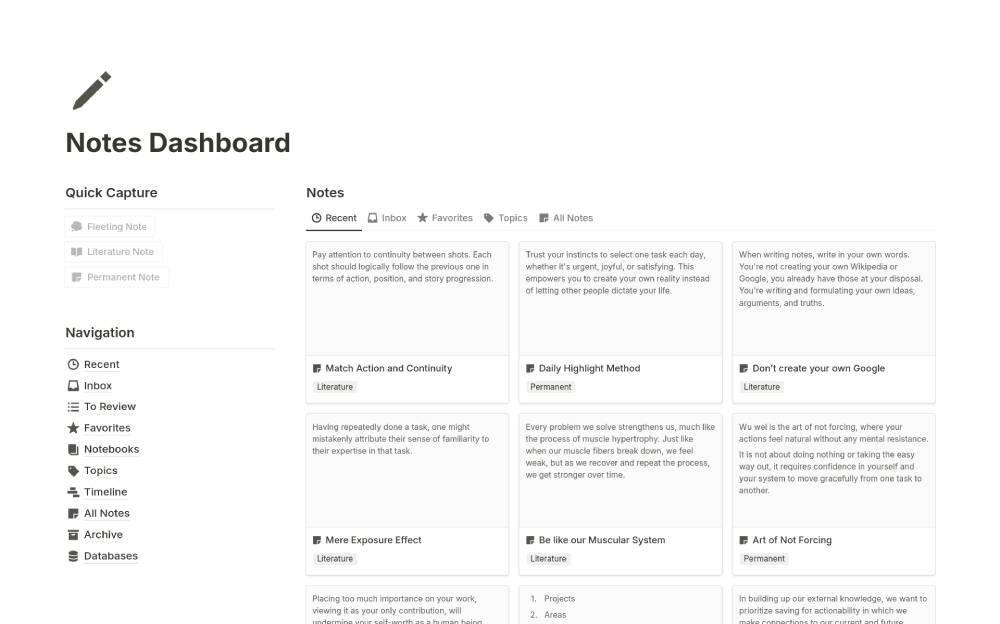
How to Make Study Notes You’ll Actually Use
Ever scribbled notes during class only to ignore them later? You’re not alone. Taking effective study notes is one of the most underrated skills in learning, yet it can drastically improve how well you understand and retain information. Done right, study notes become an active learning tool—boosting focus, clarity, and long-term recall. Whether you’re a student revising for exams, a professional upskilling, or a lifelong learner, this guide will help you master note creation and use your study tools to full effect.
Understanding the Core: What Makes Study Notes Effective?
Effective study notes aren’t about writing everything down. They’re about capturing ideas in a way that makes sense to your future self. The goal is to process information, not just record it. According to cognitive science, the act of summarising material in your own words significantly enhances memory encoding.
Three core principles shape useful note creation:
- Active engagement: You process and interact with the content rather than copy it passively.
- Structured format: Notes should have hierarchy, emphasis, and clarity to reduce cognitive load.
- Reviewable design: Good notes are made to be revisited and revised, not just written once.
Pro Tip: Use dual-coding techniques by combining visuals (diagrams, mind maps) with text. This engages more parts of the brain during recall.
Quick Guide: Key Traits of Useful Study Notes
- Easy to read and well-organised
- Highlights key ideas, not all ideas
- Uses abbreviations and shorthand where appropriate
- Includes your own thoughts, connections, or questions
- Structured using headings, bullet points, and visuals
- Designed for repeated review
- Tied to specific learning goals or exam outcomes
- Editable and expandable over time
Step-by-Step Guide: How to Create Study Notes You’ll Actually Use
1. Choose the Right Note-Taking Method
Different subjects require different note styles. Choose the method that suits your learning style and course content.
Popular formats include:
- Cornell Method: Divide your page into notes, cues, and a summary. Great for lecture-based learning.
- Mind Mapping: Use branches and visuals for creative or interconnected topics.
- Outline Method: Hierarchical bullet points are ideal for structured subjects like history or law.
- Flow-Based Notes: Capture the logic and reasoning of the material in your own words.
Important Tip: Don’t be afraid to blend methods. You might start with mind maps during class and convert them to outlines for revision.
2. Prep Before You Start Taking Notes
Before you even pick up a pen or open your app:
- Skim the topic beforehand
- Set clear goals (e.g., “Understand the causes of WWI”)
- Create a template or title your notes
This primes your brain to look for important points and structure information efficiently.
3. Take Notes in Your Own Words

Paraphrasing forces you to understand the content as you go. Avoid copying slides or textbooks verbatim. Instead:
- Rephrase complex ideas simply
- Add personal examples or mnemonics
- Leave space for post-class questions or thoughts
Why it works: This process improves recall and comprehension. You’re teaching the content to yourself.
4. Use Visual Tools and Formatting
Formatting helps your brain categorise and retrieve information faster. Try:
- Bold headings for major topics
- Bullet points or numbered lists for sub-points
- Arrows (→) to show cause and effect
- Boxes or highlights for key facts
Apps like Notion, OneNote, and GoodNotes make digital formatting easier, while coloured pens and highlighters help on paper.
5. Review and Refine Within 24 Hours
This step is critical. According to the Forgetting Curve, we forget most of what we learn within 24 hours if we don’t review it.
Schedule a 10-minute “refresh” session:
- Summarise the notes aloud
- Add missing context or clarify confusion
- Link notes to what you already know
Pro Tip: Use spaced repetition apps like Anki or Quizlet to convert notes into digital flashcards for long-term memory.
6. Tag and Store for Easy Retrieval
Whether digital or physical, your notes should be easy to find later:
- Tag by subject, topic, or date
- Use folders or binders for categories
- Add keywords or summaries at the top
Example: If you’re learning anatomy, you might tag a note as “Muscular System | Core Concepts | Diagrams Included”.
Best Practices & Additional Insights
Don’t Take Notes on Everything
Focus on understanding, not volume. Ask:
- What’s the main argument or concept?
- How does this relate to what I already know?
- What might be tested or practically useful?
Make Note Review a Weekly Habit
Set a time each week to review older notes. Use:
- Summary sheets
- Flashcards
- Peer teaching (explain the notes to a friend)
Use Tech to Your Advantage

There are many study tools that can enhance your note workflow:
- Notion or Obsidian for linked thinking and knowledge maps
- Evernote for multimedia capture and cross-device access
- Google Keep for quick voice-to-text notes
Important Tip: Don’t let the tool become a distraction. Choose one or two platforms and master them.
Keep a “Notes About Notes” Section
This is a personal log to track what works. Add:
- What note style helped you most this week?
- Did a certain visual format boost recall?
- Any patterns in what you missed?
This helps refine your process over time.
FAQs
How long should I spend making study notes?
Aim for quality over quantity. 30–45 minutes per topic is often ideal—enough to process the information but not so much that it becomes rewriting the textbook.
Should I handwrite or type my notes?
Both have benefits. Handwriting improves memory recall, but typing is faster and more searchable. Try hybrid methods (handwrite in class, type for revision).
What’s the best note-taking app for students?
There’s no one-size-fits-all answer. Try using alternatives and choose which best suits you.
How can I make my notes more useful for revision?
Add mini-summaries at the end of each section, convert key points into questions, and use colour-coding to signal importance or topics
I find it hard to stay consistent. What should I do?
Start small. Just commit to reviewing one set of notes a day. Build the habit slowly and link it to an existing routine (e.g., review after breakfast).
Make Your Notes Work for You: Start Today
Making notes isn’t just a passive task—it’s an opportunity to sharpen your understanding, personalise your learning, and build a reliable study toolkit. Remember: effective study notes are meant to be used, not just made.
So, why not begin now?
Choose a topic you’re working on, try one new note-taking method today, and see the difference it makes.
Want to level up your academic game further? Explore our post on How to Stick to Your Study Goals Long-Term to build consistency and success from your notes up.


